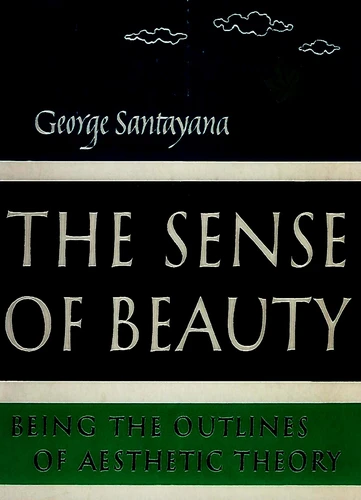The Sense of Beauty
Par :Formats :
Disponible dans votre compte client Decitre ou Furet du Nord dès validation de votre commande. Le format ePub est :
- Compatible avec une lecture sur My Vivlio (smartphone, tablette, ordinateur)
- Compatible avec une lecture sur liseuses Vivlio
- Pour les liseuses autres que Vivlio, vous devez utiliser le logiciel Adobe Digital Edition. Non compatible avec la lecture sur les liseuses Kindle, Remarkable et Sony
 , qui est-ce ?
, qui est-ce ?Notre partenaire de plateforme de lecture numérique où vous retrouverez l'ensemble de vos ebooks gratuitement
Pour en savoir plus sur nos ebooks, consultez notre aide en ligne ici
- FormatePub
- ISBN978-1-77464-359-4
- EAN9781774643594
- Date de parution08/11/2021
- Protection num.Digital Watermarking
- Taille154 Ko
- Infos supplémentairesepub
- ÉditeurRare Treasure Editions
Résumé
It is remarkably appropriate that this work on aesthetics should have been written by George Santayana, who is probably the most brilliant philosophic writer and the philosopher with the strongest sense of beauty since Plato. It is not a dry metaphysical treatise, as works on aesthetics so often are, but is itself a fascinating document: as much a revelation of the beauty of language as of the concept of beauty.
This unabridged reproduction of the 1896 edition of lectures delivered at Harvard College is a study of why, when, and how beauty appears, what conditions an object must have to be beautiful, what makes us sensible of beauty, and the relationship between the object of beauty and the excitement of our sensibilities over it.
The presentation throughout this work is concrete and easy to follow, with examples drawn from art, history, anthropology, psychology, and other areas.
The presentation throughout this work is concrete and easy to follow, with examples drawn from art, history, anthropology, psychology, and other areas.
It is remarkably appropriate that this work on aesthetics should have been written by George Santayana, who is probably the most brilliant philosophic writer and the philosopher with the strongest sense of beauty since Plato. It is not a dry metaphysical treatise, as works on aesthetics so often are, but is itself a fascinating document: as much a revelation of the beauty of language as of the concept of beauty.
This unabridged reproduction of the 1896 edition of lectures delivered at Harvard College is a study of why, when, and how beauty appears, what conditions an object must have to be beautiful, what makes us sensible of beauty, and the relationship between the object of beauty and the excitement of our sensibilities over it.
The presentation throughout this work is concrete and easy to follow, with examples drawn from art, history, anthropology, psychology, and other areas.
The presentation throughout this work is concrete and easy to follow, with examples drawn from art, history, anthropology, psychology, and other areas.






